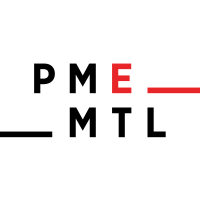Las Fincas is a roaster and distributor of unique specialty coffees that needed a strategy to improve its marketing efforts and overcome the challenges it faced due to the pandemic. PME MTL helped Las Fincas develop a customized commercialization plan.
Armando Gonzalez and Warren Williams, the founders of Las Fincas, see coffee as much more than simply a delicious hot beverage. For them, coffee represents the story of the individual coffee growers and producers, 100% traceable beans and flavours as varied as the soil from which they emerge.
The result of this vision is high-end, fairly traded coffee that is roasted according to the strictest quality standards. Their products are available in a variety of forms – coffee beans sold in bags and cans, ready-to-drink cold brews, and most recently, coffee-based sodas – and they are sold to consumers and companies, restaurants and fine grocers.
With a highly diversified product line and an extensive potential clientele, Las Fincas was beginning to lose focus and was unable to deploy a targeted and effective business strategy. In addition, the health crisis had resulted in a catastrophic cessation of sales to businesses. Ada Panduro, Director of Commercialization of Innovations for the Bio-food Industry at PME MTL, helped them to identify their guiding principles and implement a targeted and effective commercial plan.
Cultivating the potential for growth
What exactly is a commercial plan? It can be described as a roadmap that guides entrepreneurs toward their destination, otherwise known as sales goals. According to Ada Panduro: “It’s an essential tool that sets out the series of actions to be undertaken in order to attain one or more commercial goals over a given time period. It helps to guide a business toward its true growth potential.”
The plan addresses a number of crucial questions, such as how to deal with competitors, which market segment to prioritize, the need for recruiting a sales force, how to succeed and advertise, whether a business is ready to move into a new market, and so on. Warren Williams explains: “We had so many ideas, and Ada helped us to bring some order to the chaos. This approach also enabled us to reinvent ourselves and relaunch our operations despite the health crisis.”

During the summer of 2021, Ada Panduro conducted a number of workshops with the two owners, with a view to better defining their unique value proposition, fine-tuning their business model and preparing an “elevator pitch” adapted to their various types of clienteles.
Warren and Armando then had some homework to do. Armando Gonzalez clarifies: “We had to reflect on which values were most important to the company, which values we wanted to convey. After that, we each drafted a commercial plan, and then we merged our two perspectives into one common document.”
Determining their unique value proposition
The fact that products offered by Las Fincas are available to both companies and consumers constitutes a challenge in itself. In light of this, Warren and Armando had to define their unique value proposition in order to harmonize the two components. In Ada Panduro’s opinion: “This process is often very complex for entrepreneurs, but at the end of the day, they derive a sense of pride in having successfully identified the essential characteristics of their offer. This allows them to feel more in control, because they have a clear plan for attaining their goals.”
Ideally, the plan should be revised annually, before the end of the fiscal year. This allows for an inventory of what was successful and which errors should be avoided moving forward. It should also remain flexible enough to allow the business to evolve and adapt to change.
One problem that entrepreneurs often encounter is a lack of sufficient time to complete the process. “At PME, our clients usually wear multiple hats and have to do everything themselves. In this case, it took Warren and Armando two months to finalize their plan” Ada Panduro recalls.
Nevertheless, it was worth it in the end! “This process gave us the opportunity to define the markets that we wanted to develop and the manner in which we wanted to do it. In effect, we offer highly specialized products, and Ada helped us to identify which potential clients we should approach, especially fine grocers”, Warren Williams points out.
There is no doubt that the commercialization of their newest product, Fizzman, an original coffee-based soda, will be easier because of the reflection process they have already gone through.
_
Las Fincas received coaching from the commercialization of innovations experts at PME MTL.
